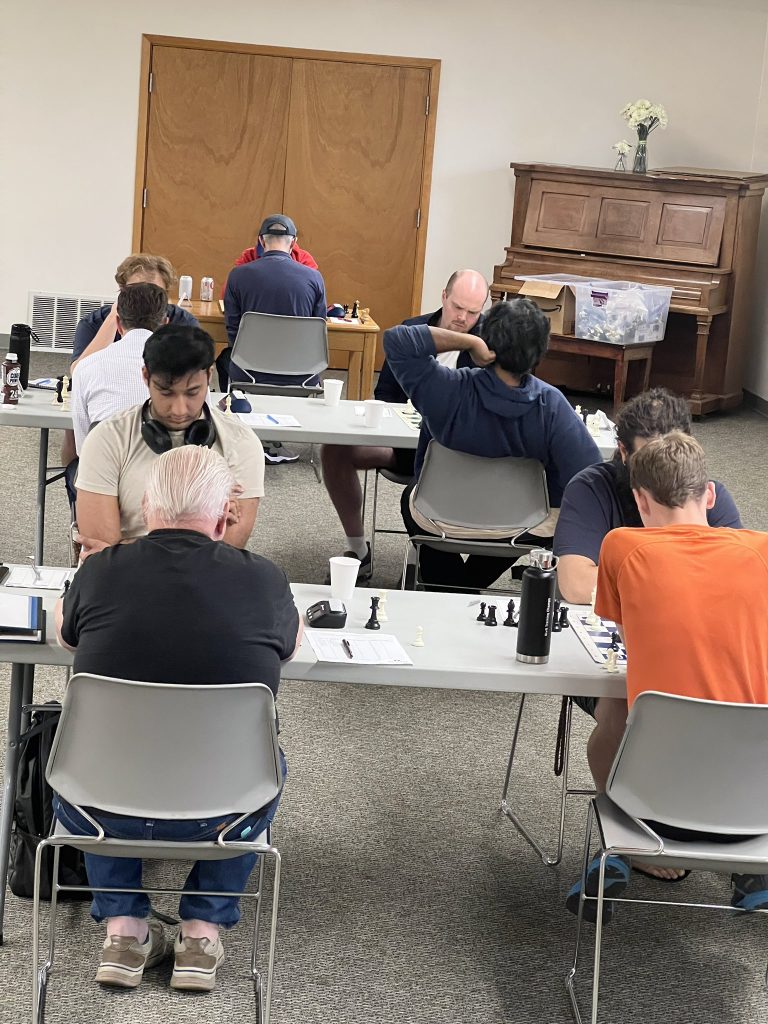We had 14 people turn out for unrated blitz last week! Here are the standings – congrats to Kirk Steinocher for getting a perfect 5.0/5.0!
![]()
Hope to see you this coming week for our most popular event, Rapid Quads! Remember, events have been pushed back to 6:45 PM to accommodate the traffic and weather.

